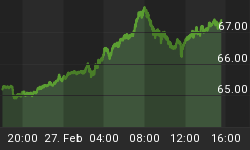Just released, the February jobs report beat expectations in new payrolls and unemployment but failed to meet economists’ predictions with regard to higher wages.
The Labor Department’s Bureau of Labor Statistics reported today that nonfarm payroll for the month grew by 678,000 and the unemployment rate was 3.8%.
With those numbers, the U.S. economy added back the most jobs since July 2021 and the unemployment rate has now reached the lowest level since February 2020.
Wall Street had been looking for 440,000 new jobs during the last month and a 3.9% unemployment rate.
Much as in the previous months, February also saw broad gains in employment across industries. Pandemic-hit services sector posted a notable increase in jobs, with leisure and hospitality employers adding back 179,000 jobs, compared to 167,000 in January.
Education and health services jobs rose by 223,000, while transportation and warehousing job growth came in at almost 50,000, matching January.
Yet, chronic labor shortages are still a major obstacle to filling the 10.9 million jobs that were open at the end of 2021. That represents 1.7 job openings for every unemployed worker, the most in the two decades.
At the same time, average hourly wage growth unexpectedly decelerated in February. The average hourly earnings of private-sector workers rose a penny from January, the smallest gain in the last 12 months.
On an annual basis, wages rose 5.1%, well below the 5.8% Dow Jones estimate, marking the slowest rate since December.
Despite the rise of wages at rates nicely above pre-pandemic trends for months now, they have not kept pace with the rise in consumer price inflation. The Consumer Price Index last rose 7.5% in January over last year — the biggest jump in four decades.
From December 2020 to December 2021, as consumer prices rose, real (inflation-adjusted) average hourly earnings fell 2.4%.
U.S. President Joe Biden praised the jobs report, as he did the previous one, crediting the progress to the “new economic approach I talked about in the State of the Union—grow the economy from the bottom up and middle out”.
“While we must tackle head on the challenge families are facing with rising costs, today’s report underscores that the United States is uniquely well positioned to deal with the challenge that inflation has posed across the world as we recover from the pandemic,” President’s Biden statement said
However, what could dent the U.S. economy and risk sending inflation even higher is a surge in oil prices, a drop in economic activity, or a further escalation of the conflict with Russia.
To prevent the economy from overheating, the Federal Reserve is set to raise interest rates multiple times this year; however, its raises are less aggressive than the market previously anticipated.
In testimony before the Senate Banking Committee on Thursday, Federal Reserve Chair Jerome Powell said that the central bank would be able to hike interest rates to fight inflation without derailing the strong labor market.
















